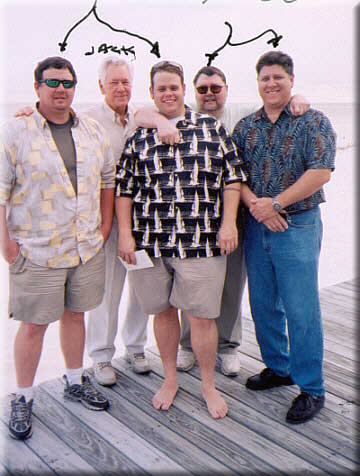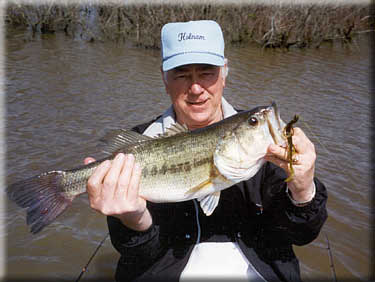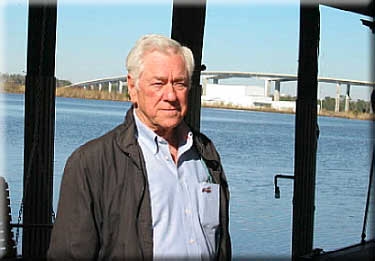Continued Health And Happiness
Moss Point is located in the southeastern tip of Mississippi along the Pascagoula River Basin. The Pascagoula River is the continental United States' only large unspoiled river system. The 20,000 residents of Moss Point have long realized the importance of keeping the eco-system alive and thriving. It is a bird watching mecca, a fisherman's paradise and a haven for those that cherish the calming effect of the open waters.
Recently, the Moss Point residents fought to keep coal barges from rounding the Escatawpa River to the Pascagoula River at Moss Point, blocking an offshore oil sludge transfer station from locating downtown and successfully killing a proposal to burn medical waste at the local incinerator.
The city banned the construction of new cell phone towers when a 2001 report showed a detrimental effect on migratory birds. The year before, the council took similar action on new billboards. All of these efforts began to solidify the town's idea of itself as a natural wonderland.
The Moss Point annual Fall-De-Rah festival takes place on the riverfront in downtown Moss Point. It features natural products common to the South. The Fall-De-Rah began in Moss Point but is now mirrored in several neighboring towns. One can easily see the pride and love the residents of Moss Point have in keeping their town free from pollutants and preserving their traditions and culture.

Jack Wade was born and raised in Mississippi. He is a 75 year-old retired tilesetter. He lives in Moss Point and proudly states that he has always been a "small town fella". His home lies on the shores of Beardslee Lake, an offshoot of the Pascagoula River. A short walk out Jack's back door takes you to his boat house. The boat house is complete with two boat lifts, a cleaning station, refrigerator and storage shed. He has at least two dozen salt water and fresh water fishing rods with accompanying gear. He fishes, crabs and shrimps from the boat house. In fact, several crab traps hang just above the water's edge, ready to be baited. When taking a break, Jack sits in the boathouse swing and watches the hundreds of pelicans, ducks and other waterfowl swim on the inlet.
Today, there is only one boat hanging out of the water. Jack's center console Beechcraft is his home-away-from-home. You see, to Jack, it doesn't matter how many fish you catch or if you catch any. The reward and pleasure is just being out on the water relaxing as the water laps up against the hull. According to Jack, "I grew up around the water and spent as much time as I could on the water. It is a place where my mind always ends up."
He spends as much of his free time on the golf course as on the water. He hits the links with his buddies at least three times a week. He routinely shoots in the low 80s. Jack looks very fit for a man his age and moves with the grace of a former elite athlete. He has always watched his diet and exercised regularly.
In October of 2003, Jack underwent a routine physical. His doctor is also one of his closest friends. Less than a year ago, they spent three days fishing for largemouth bass at Lake El Salto in Mexico, one of the world's premier bass fishing lakes. In true fisherman fashion, Jack brags that they pulled in "hundreds" of large mouth bass over three days.

As part of the physical, his doctor ordered a CT scan instead of the usual chest film. The scan revealed a shadow on Jack's right lung. Jack's doctor, himself a lung cancer survivor, quickly referred him to a local surgeon.
On October 7, Jack was admitted to Singing River Hospital and underwent a tissue biopsy. The surgeon made two incisions, one in his upper right chest area and the second midway down his back. A chest tube was also inserted.
Several tissue specimens and one of Jack's ribs were removed. The tissue specimens were examined by a pathologist at Singing River who diagnosed biphasic malignant mesothelioma. The specimens were then sent to the pathology department at the University of Arkansas. Using immunohistochemical staining, the University of Arkansas confirmed the diagnosis. Jack spent four days in the hospital.
After his discharge, Jack discussed his treatment options with the surgeon. The surgeon readily admitted the he was fascinated with Jack's diagnosis but was not qualified to treat him. He then contacted several surgical oncologists along the Gulf coast including doctors at the University of Texas M.D. Anderson Hospital in Houston, Texas. One of the M.D. Anderson physicians recommended an extra-pleural pneumonectomy, which entailed removing the lung and possibly part of the diaphragm followed by chemotherapy and radiation treatments. The second M.D. Anderson physician wished to treat Jack with radiation therapy, only. In all, Jack's surgeon spoke to six physicians, after which he told Jack that he was not "comfortable" with any of the experts he spoke to.
The last physician Jack's surgeon contacted was Dr. Harvey Pass at the Karmanos Cancer Clinic in Detroit, Michigan. After reviewing Dr. Pass' curriculum vitae and speaking to him personally, Jack's surgeon made an appointment for Jack to meet with Dr. Pass on January 27.
Jack's surgeon has since moved his practice to Atlanta, but before he did, he told Jack that he wanted to be kept abreast of his treatments. He told Jack to call him if he ever needed anything.
On January 27, Jack met with Dr. Pass. After examining Jack and reviewing his medical records Dr. Pass recommended Jack come back in 90 days for another CT scan to determine if he qualified for a pleurectomy. In the meantime, he told Jack to continue his daily activities and let him know if there is any new discomfort or pain. Jack said he was "very, very impressed with Dr. Pass, his knowledge and professionalism. He knew more about me than I did!"

This was good news to Jack. Up to this point, he thought his days were numbered and the end was near. He felt that because he regularly watched his diet and exercised, his body was keeping the mesothelioma at bay.
So far, Jack's body has kept the tumor at bay. His latest CT scan showed no significant growth.
Jack's wife of 52 years, Violet Wade, died at their home of a heart attack on September 12, 2001. His two sons and their families live nearby. His grandchildren visit often, looking forward to getting out on the water with grandpa. His home is at the end of the street, nestled under a giant oak tree with a trunk roughly eight feet in diameter. His backyard is well-groomed, with a large deck that has two fire pits. It is clear that this home is a favorite for entertaining.
Jack tries to keep himself busy and his mind off his illness. He has taken driftwood which washed ashore and made frames for photographs of his wife, sons and grandchildren, and prints and paintings of the ocean. He contemplates these pictures which cover his walls, and then returns, as always, to the water: "I have always loved the water, looking at the water, swimming, and just sitting out there."
In Greek mythology, there was a giant wrestler called Antaeus who was invincible as long as he remained in contact with his mother, the Earth. As Jack Wade wrestles with mesothelioma, he keeps his feet firmly planted in Moss Point and its life-giving waters. We will continue to chart the course of this Mississippi waterman's search for continued life, health and happiness.
*** POSTED MAY 3, 2004 ***
An Update -- 11/16/06
On October 22, 2006 Jack accompanied by his son Steven returned to New York to see Dr. Harvey Pass at NYU School of Medicine and Comprehensive Cancer Center after a CT scan revealed a possible growth between his lung and wall of his back on the right side. Jack underwent surgery on October 25. Entering through the previous incision site, Dr. Pass removed all of the tumor and thoroughly examined Jack's thoracic cavity for signs of further disease. According to Jack, Dr. Pass said he is "clean".
Jack is not scheduled to receive any chemotherapy or radiation. He is to follow up with CT scans every three months with his local physician. Jack stated that he had a wonderful time in NYU - they treated him like royalty for the 6 days that he spent in the hospital. Jack returned home on November 3. He states that he feels good, really good as long as he doesn't think about what the future might have in store for him.
*** Mr. Jack Wade passed away on May 2, 2009 ***

